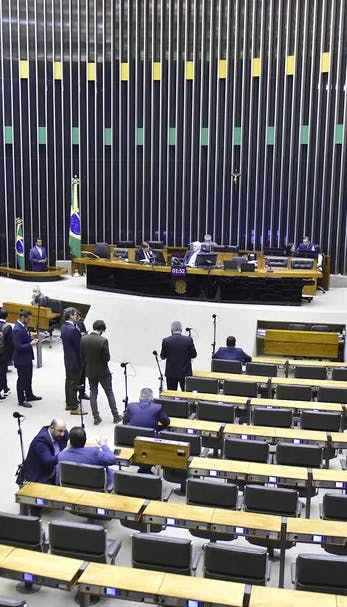Legal Framework for Sports Betting in Brazil
Discover the implications and details of the bill that regulates online sports betting in Brazil.
The Lottery House
tags:
sports betting
game

Chamber Defines Rules for the Sector in Brazil
On September 13, Brazil's Chamber of Deputies marked an important milestone by approving a bill establishing regulations for online sports betting. This movement was closely followed by gambling enthusiasts, industry entrepreneurs and politicians, as it promises to significantly impact the betting industry in the country. The proposal, which now goes to the Senate, aims to provide a safer and more controlled environment for sports betting, while also opening the door to taxing the activity and distributing resources to areas such as sport, education and public safety.

Rules and Taxes
The bill approved by the Chamber of Deputies brings with it a series of regulations and taxes that will affect online sports betting in Brazil. Among the main provisions, the charge of 30% on bettors' winnings stands out, as long as they exceed the value of R$2,112. This rate is similar to that applied to lottery prizes already existing in the country.
Furthermore, the project provides for the taxation of "bets", which are betting houses, at 18% of gross revenue, minus the prizes paid to bettors, known as Gross Gaming Revenue (GGR). It is worth mentioning that there was an attempt to reduce this rate to 12%, but the proposal faced resistance among deputies.
An important point to note is the inclusion, by the project rapporteur, deputy Adolfo Viana (PSDB-BA), of the regulation and taxation of other games available on the internet, such as online casinos. Viana argues that the regulation of these markets will allow for more effective supervision and the collection of taxes on the companies involved, in addition to formalizing the jobs generated by this sector, which generates around R$150 billion annually in Brazil.
Participation Restrictions
A crucial aspect of the bill is the ban on certain people participating in online sports betting. This includes minors, people who have influence on the outcome of sports betting, such as referees, coaches, athletes and sports coaches, and employees responsible for regulating the sector at the Ministry of Finance. These restrictions aim to ensure the integrity of sports betting and prevent fraudulent or manipulative practices.
Operation in Brazil
The provisional measure sent by the government established a fee of R$30 million as a grant for betting sites that wish to operate in Brazil. The project's rapporteur, Adolfo Viana, added that these same sites will have the opportunity to operate for up to five years in the country. To avoid tax evasion, betting sites will be required to maintain accounts with institutions authorized to operate by the Central Bank.
Resource Distribution
The bill also establishes the distribution of resources raised from the taxation of sports betting. According to the text, 8% of these resources will be divided equally between the Sports and Tourism ministries. Furthermore, the Ministry of Education will receive 1% of the funds raised to invest in technical schools, and 0.82% will be allocated to elementary education.
The project also provides for the transfer of 1% of resources to the Brazilian Agency for International Tourism Promotion (Embratur), 2.55% to the National Public Security Fund and 2% to Social Security. Furthermore, 1.13% of the resources will be allocated to clubs and athletes, and 0.5% will be directed to the State and Municipal Sports Department.
Awards
Payment of sports betting prizes must be made exclusively through transfers, credits or remittances to bank accounts authorized by the Central Bank. Bettors will have the option of keeping money in virtual wallets for use in new bets with the same company. However, it is important to highlight that the player will lose the right to the prize if he does not notify the company within 90 days of announcing the results of the bets. Unclaimed resources will be allocated in equal parts to the Student Financing Fund (Fies) and the National Public Calamity Fund (Funcap).
Infractions and Punishments
The bill establishes a series of administrative infractions and punishments for those who violate the rules. Among the infractions are the operation of a fixed-odd betting lottery without prior authorization from the Ministry of Finance, unauthorized operations, embarrassing inspections, providing incorrect information, among others.
Punishments range from warnings to substantial fines, which can reach 20% of the previous year's revenue in the case of legal entities, with a maximum value of R$2 billion. Individuals or associations may face fines ranging from R$50,000 to R$2 billion. In addition, punishments include partial or total suspension of activities, revocation of authorization, prohibition on obtaining new authorizations and disqualification from holding positions in bodies related to the exploration of lottery modalities.
Conclusion

The approval of the bill that regulates online sports betting represents an important step in the search for a more transparent and controlled market. In addition to creating clear rules for the operation of these bets, the project also promises to generate significant revenue for areas such as sport, education and public safety. However, it is important to note that the implementation and compliance with these regulations will be essential to the success of the new sports betting landscape in Brazil. The Senate will now have the task of reviewing and approving the project, continuing this important transformation in the country's gaming industry.